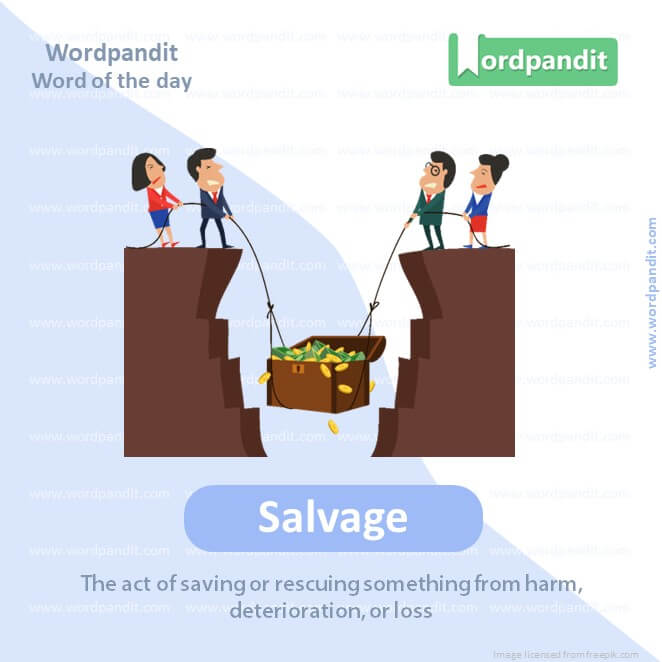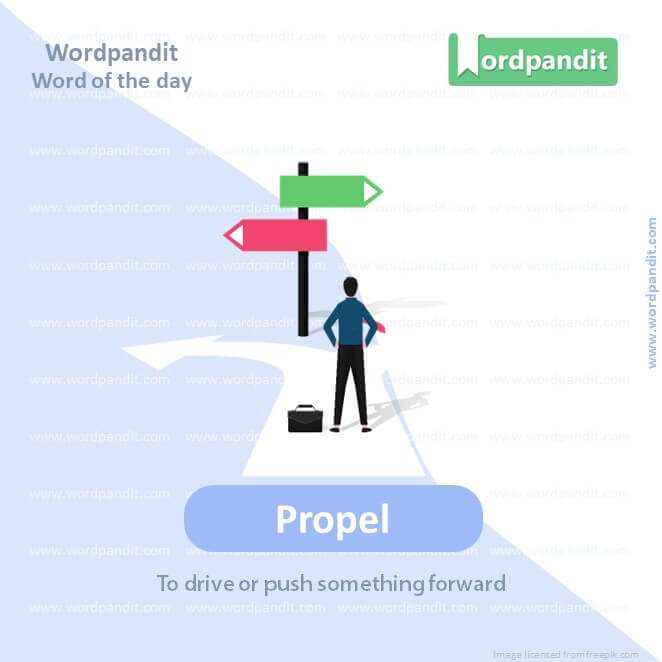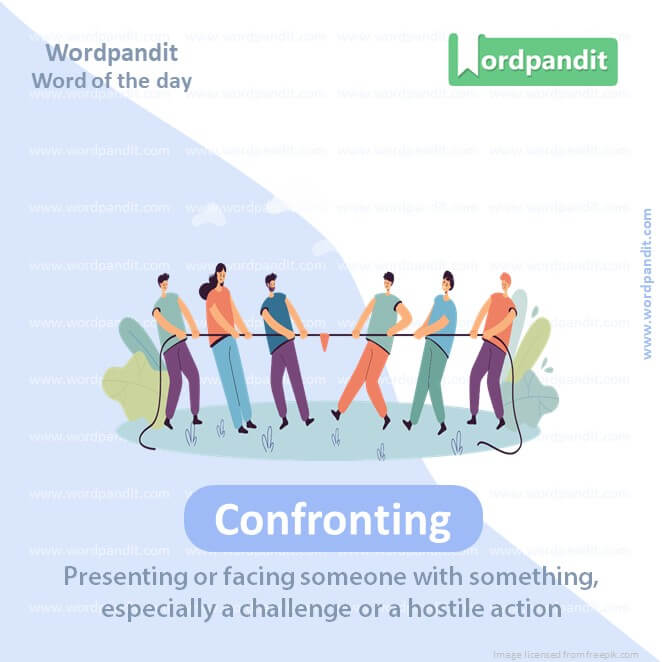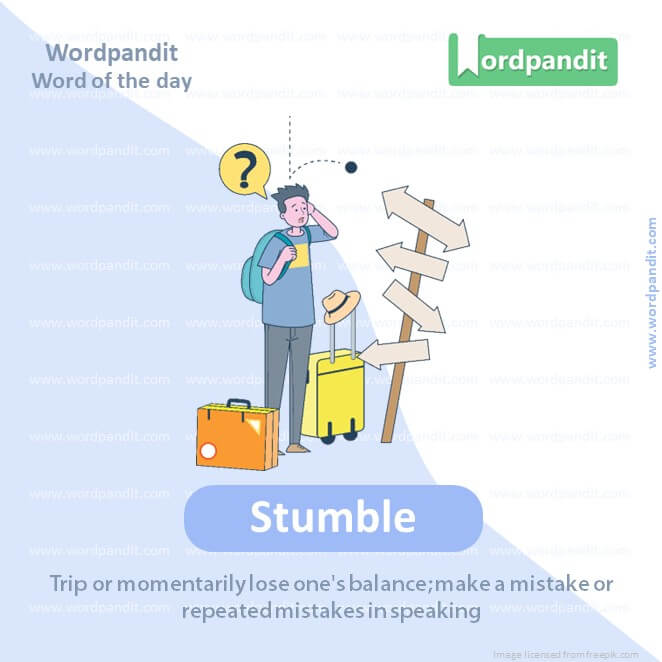Daily Vocabulary Words: List of Daily Used Words in Leading Indian Newspapers
Hi there. Welcome to this special section @ Wordpandit. Our endeavour here is straightforward: highlighting daily vocabulary words that you would come across in leading newspapers in the country. We have included the following newspapers in our selection:
• The Times of India
• The Economic Times
• Hindustan Times
• Mint
• Indian Express
We are putting in extensive work to develop your vocabulary. All you have to do is be regular with this section and check out this post daily. This is your repository of commonly used words; essentially, we are posting a list of daily used words. Hence, this has significant practical application as it teaches you words that are commonly used in leading publications mentioned above.
Visit the website daily to learn words from leading Indian newspapers.

WORD-1: SALVAGE
CONTEXT: As the financial quarter comes to a close, companies are making desperate attempts to salvage their profit margins amidst the global downturn.
SOURCE: The Economic Times
EXPLANATORY PARAGRAPH: “Salvage” means to save or rescue something from being completely ruined or lost. Imagine if a toy boat is sinking in the bathtub and you quickly pick it up to stop it from getting filled with water. You just salvaged it!
MEANING: The act of saving or rescuing something from harm, deterioration, or loss (verb).
PRONUNCIATION: SAL-vij
SYNONYMS: Rescue, recover, retrieve, save, reclaim.
USAGE EXAMPLE:
1. They managed to salvage the old photographs from the fire.
2. She tried to salvage her reputation.
3. We need to salvage what we can after the storm.
4. The team attempted to salvage the game in the last few minutes.

WORD-2: PROPEL
CONTEXT: The success of the recent biopic is expected to propel the lead actor into the top tier of Bollywood celebrities.
SOURCE: The Times of India
EXPLANATORY PARAGRAPH: “Propel” is like giving a push to something to make it move forward. Imagine you’re on a swing, and someone gives you a big push from behind. They’re propelling you!
MEANING: To drive or push something forward (verb).
PRONUNCIATION: pro-PELL
SYNONYMS: Push, drive, thrust, propel, launch, move.
USAGE EXAMPLE:
1. The wind will propel the boat.
2. His ambition propelled him to the top of the company.
3. The story propelled her to fame.
4. Water is used to propel the boat.
WORD-3: NOVICE
CONTEXT: Despite being a novice in the political arena, the young leader has managed to garner significant public support with her passionate speeches.
SOURCE: Hindustan Times
EXPLANATORY PARAGRAPH: A “novice” is someone who is new to something and is just starting to learn about it. Like if you’ve just started learning how to ride a bike, you’re a novice bike rider!
MEANING: A person who is new and inexperienced in a certain activity (noun).
PRONUNCIATION: NOH-vis
SYNONYMS: Beginner, learner, newcomer, rookie, amateur.
USAGE EXAMPLE:
1. As a novice in cooking, she followed the recipe closely.
2. He’s a novice at golf, so be patient.
3. The workshop is designed for both experts and novices.
4. She’s a novice in the world of politics.
WORD-4: ACRIMONY
CONTEXT: The board meeting ended in acrimony, with members sharply divided over the proposed merger.
SOURCE: Mint
EXPLANATORY PARAGRAPH: “Acrimony” is a fancy word for when people are really bitter and mean to each other. Like if two friends are fighting and saying hurtful things, they’re speaking with acrimony.
MEANING: Bitterness or ill feeling (noun).
PRONUNCIATION: AK-ri-moh-nee
SYNONYMS: Bitterness, resentment, hostility, animosity, anger.
USAGE EXAMPLE:
1. Their argument was full of acrimony.
2. There’s been a lot of acrimony between the two teams.
3. They divorced without any acrimony.
4. Political debates often involve a lot of acrimony.
WORD-5: CRUNCH
CONTEXT: The current economic crunch has left several startups struggling for funding, forcing many to rethink their business models.
SOURCE: The Economic Times
EXPLANATORY PARAGRAPH: “Crunch” is a term often used to describe a tough situation or a time of scarcity, especially in economic contexts. For instance, if there’s not enough money or resources to go around, it’s a “crunch”.
MEANING: A critical situation or period of time, especially due to shortage (noun).
PRONUNCIATION: KRUNCH
SYNONYMS: Pinch, bind, squeeze, scarcity, shortage.
USAGE EXAMPLE:
1. Many families feel the financial crunch during the holiday season.
2. The industry is in a crunch due to supply chain disruptions.
3. The water crunch in the city has led to rationing.
4. The economic crunch has impacted small businesses the most.
WORD-6: CONSTERNATION
CONTEXT: The sudden policy change by the central bank was met with consternation from several industry leaders who felt it was untimely.
SOURCE: Mint
EXPLANATORY PARAGRAPH: “Consternation” is the feeling of surprise that makes someone worried or confused. Imagine if you walked into your room and found your toys floating in the air. You’d be in consternation!
MEANING: Feelings of anxiety or dismay, usually at something unexpected (noun).
PRONUNCIATION: kon-stur-NAY-shun
SYNONYMS: Shock, surprise, dismay, distress, horror.
USAGE EXAMPLE:
1. The news was met with consternation by fans.
2. To her consternation, the door was locked.
3. His decision caused much consternation among the team.
4. She stared at the test results in consternation.

WORD-7: CONFRONTING
CONTEXT: Confronting the challenges of urbanization requires a holistic approach that goes beyond mere infrastructure development.
SOURCE: Indian Express
EXPLANATORY PARAGRAPH: “Confronting” means facing something directly, especially if it’s difficult or challenging. Like if there’s a monster under your bed and instead of hiding, you bravely look under the bed, you’re confronting the monster!
MEANING: Presenting or facing someone with something, especially a challenge or a hostile action (verb).
PRONUNCIATION: kon-FRUN-ting
SYNONYMS: Face, tackle, deal with, address, approach.
USAGE EXAMPLE:
1. She’s confronting her fears head-on.
2. He was confronting the challenges of his new job.
3. The issue of climate change needs confronting.
4. It’s time for him to start confronting his responsibilities.
WORD-8: BEQUEATH
CONTEXT: The late author chose to bequeath the royalties from her best-selling novel to a children’s charity.
SOURCE: The Times of India
EXPLANATORY PARAGRAPH: “Bequeath” is like leaving something special for someone after you’re gone. It’s like if you have a favorite toy and you decide that, when you grow up, you’ll leave it for your little brother or sister.
MEANING: To leave property or money to someone by a will (verb).
PRONUNCIATION: bih-KWEETH
SYNONYMS: Leave, hand down, pass on, give, entrust.
USAGE EXAMPLE:
1. She bequeathed her jewelry to her daughter.
2. My grandfather bequeathed me his old guitar.
3. The artist bequeathed several paintings to the museum.
4. He bequeathed his entire estate to his niece.

WORD-9: STUMBLE
CONTEXT: The reigning champions suffered a major stumble, losing to the underdogs in yesterday’s match.
SOURCE: Hindustan Times
EXPLANATORY PARAGRAPH: “Stumble” is when you trip or almost fall while walking or running. Imagine you’re walking and your foot catches on a toy, and you nearly fall. That’s stumbling!
MEANING: Trip or momentarily lose one’s balance; make a mistake or repeated mistakes in speaking (verb).
PRONUNCIATION: STUM-bul
SYNONYMS: Trip, totter, falter, lurch, teeter.
USAGE EXAMPLE:
1. He stumbled over a toy left on the floor.
2. I stumbled in the dark and hurt my toe.
3. She stumbled over her words in nervousness.
4. They stumbled into a hidden cave.

WORD-10: PATRIARCH
CONTEXT: The patriarch of the Kapoor business empire passed away, leaving behind a legacy that spans over six decades.
SOURCE: The Economic Times
EXPLANATORY PARAGRAPH: A “patriarch” is like the head or leader of a family or group, usually an older man. Think of it like the grandpa who everyone in the family looks up to and listens to because he’s wise and has lots of experience.
MEANING: The male head of a family or tribe; an older man who is respected for his wisdom or influence (noun).
PRONUNCIATION: PAY-tree-ark
SYNONYMS: Chief, leader, elder, head of the family, father figure.
USAGE EXAMPLE:
1. He was the patriarch of the family and everyone respected him.
2. The patriarch shared stories of the old days.
3. As the patriarch, he had the final say in family matters.
4. The village patriarch gave his blessings to the young couple.







